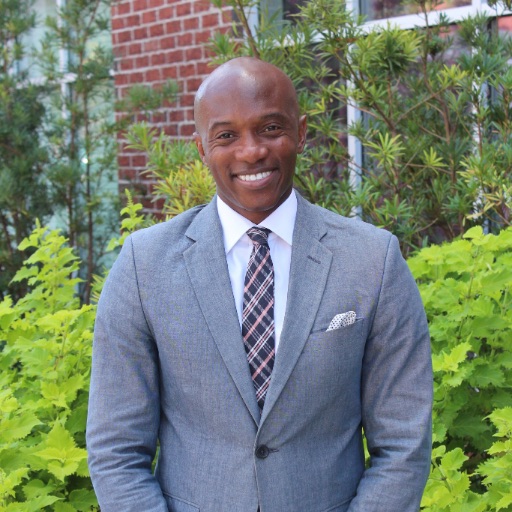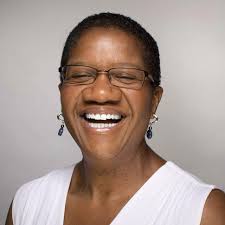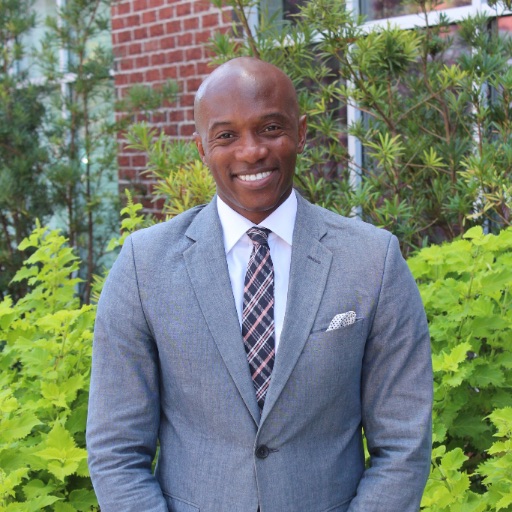
Joined Washington Post From CNN
Support Journal-isms
Darran Simon, who started work at The Washington Post as a city government and politics reporter last month, was found dead in his District of Columbia apartment on Thursday, Post managers told staff members on Friday. He was 43 and had worked at The Philadelphia Inquirer, Newsday, The Times-Picayune in New Orleans, The Miami Herald and most recently at CNN Digital in Atlanta, where he was a senior writer.
“A spokeswoman for the D.C. medical examiner’s office said a determination of the cause of death is pending further tests,” Adam Bernstein wrote later Friday for the Post.
The Post’s initial failure to address the cause of death, editors’ reminder that help for troubled employees was available and the News Guild’s mention of the National Suicide Hotline number (scroll down) led to speculation that Simon had taken his own life, which would be a rarity. The Chicago Tribune’s Leanita McClain did so in 1984.
“Like you I am not aware of any African-American journalists who died by suicide,” Bruce Shapiro, executive director of the Dart Center for Journalism and Trauma at Columbia University Graduate School of Journalism, messaged Journal-isms earlier Friday.
Simon was a member of the National Association of Black Journalists and other members tweeted their sorrow. The Inquirer’s Melanie Burney said, “This is devastating news. @darransimon was like a little brother. He was a talented reporter with a bright future. A nice guy and a decent human being. He will be missed. Rest in peace, my friend.”
Sarah Glover, NABJ president from 2015 to 2019, said, “I’m in disbelief and shocked to hear of @darransimon’s passing… a bright light gone too soon. He was a good, kind man and reporter. Rest In Peace.”

Fenit Nirappil, Simon’s colleague covering city hall, known as the John A. Wilson Building, wrote an essay that read, in part, “We were a good team even before he started. He asked me how much taxpayers were paying for the mayor to campaign for Mike Bloomberg. That thought didn’t even occur to me. With his nudging and a well-placed FOIA, I nailed a little nugget of accountability journalism. . . .
“In those first weeks, Darran put me to shame with how tirelessly he worked to get to know his adopted city, arranging more meetings with community leaders and government officials than I probably had in one year. He took special interest in the poorest, most segregated parts of the city. He pushed me to challenge my assumptions and see things through a different lens when we talked through story ideas. . . .”
According to the Post obituary, “Mr. Simon was born in England and spent his childhood in the South American nation of Guyana and in New Jersey. In his professional life, he displayed restless curiosity as well as deep compassion for people who had endured natural catastrophe and man-made violence.
“ ‘I am drawn to writing about suffering and trauma,’ he once noted, ‘because I am in awe of the human spirit’s ability to persevere.’ ”
Editors also praised Simon, who was a regular Journal-isms reader.
“He made an immediate impact on his arrival,” Post Executive Editor Marty Baron and Metro Editor Mike Semel said in their note to the staff. “Darran proved himself to be dogged, as when asking Mayor [Muriel] Bowser questions at her daily press briefings, and deeply humane, as when he told the story of a former ‘Jeopardy’ contestant who died of covid-19. He was entrusted to write several of Metro’s coronavirus leadalls, in large part because he worked so well with everyone and because he was a clear and fluid writer. . . .”

Cathy Straight, executive editor of national news for CNN Digital, told staff members, “My most cherished memory of Darran was his compassion. It showed in how he lived his life outside of work, for sure, but he always found ways to inject it into his journalism, too. I so admired that about him.
“In one of our last conversations before he left for DC, he thanked me for always ‘seeing’ him. He knew he didn’t have to explain that to me; that I knew exactly what he meant. I am grateful that we all had the opportunity to know him, work with him and see him. . . .”
Shapiro, of the Dart Center, added, “He was a Dart Center Ochberg Fellow last year, one of 15 journalists from around the world who spent a week with us at Columbia looking deeply into reporting on traumatic events. He was a deeply caring journalist, who sought the fellowship because of his devotion to reporting on survivors of violence. This is a very sad loss,” he messaged Journal-isms.
Facebook users: “Like” “Richard Prince’s Journal-isms” on Facebook.
Follow Richard Prince on Twitter @princeeditor
Richard Prince’s Journal-isms originates from Washington. It began in print before most of us knew what the internet was, and it would like to be referred to as a “column.” Any views expressed in the column are those of the person or organization quoted and not those of any other entity. Send tips, comments and concerns to Richard Prince at journal-isms-owner@yahoogroups.com
View previous columns (after Feb. 13, 2016).
- Diversity’s Greatest Hits, 2018 (Jan. 4, 2019)
- Book Notes: Is Taking a Knee Really All That? (Dec. 20, 2018)
- Book Notes: Challenging ’45’ and Proudly Telling the Story (Dec. 18, 2018)
- Book Notes: Get Down With the Legends! (Dec. 11, 2018)
- Journalist Richard Prince w/Joe Madison (Sirius XM, April 18, 2018) (podcast)
- Richard Prince (journalist) (Wikipedia entry)
- February 2018 Podcast: Richard “Dick” Prince on the need for newsroom diversity (Gabriel Greschler, Student Press Law Center, Feb. 26, 2018)
- Diversity’s Greatest Hits, 2017 — Where Will They Take Us in the Year Ahead?
- Book Notes: Best Sellers, Uncovered Treasures, Overlooked History (Dec. 19, 2017)
- An advocate for diversity in the media is still pressing for representation, (Courtland Milloy, Washington Post, Nov. 28, 2017)
- Morgan Global Journalism Review: Journal-isms Journeys On (Aug. 31, 2017)
- Diversity’s Greatest Hits, 2016
- Book Notes: 16 Writers Dish About ‘Chelle,’ the First Lady
- Book Notes: From Coretta to Barack, and in Search of the Godfather
- Journal-isms’ Richard Prince Wants Your Ideas (FishbowlDC, Feb. 26, 2016)
- “JOURNAL-ISMS” IS LATEST TO BEAR BRUNT OF INDUSTRY’S ECONOMIC WOES (Feb. 19, 2016)
- Richard Prince with Charlayne Hunter-Gault,“PBS NewsHour,” “What stagnant diversity means for America’s newsrooms” (Dec. 15, 2015)
- Book Notes: Journalists Follow Their Passions
- Book Notes: Journalists Who Rocked Their World
- Book Notes: Hands Up! Read This!
- Book Notes: New Cosby Bio Looks Like a Best-Seller
- Journo-diversity advocate turns attention to Ezra Klein project (Erik Wemple, Washington Post, March 5, 2014)

